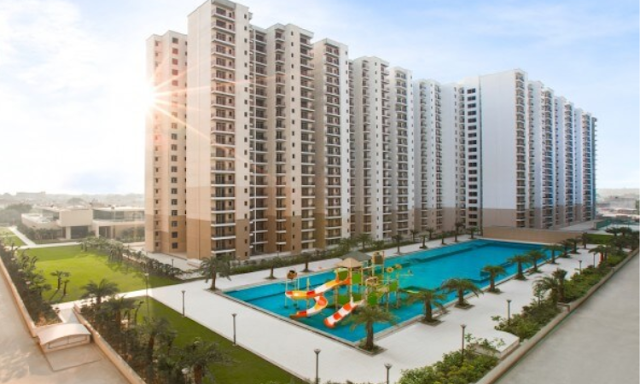The Impact of FDI on Indian Real Estate
Foreign Direct Investment (FDI) has significantly reshaped the landscape of the Indian real estate market. According to a recent report by the Department for Promotion of Industry and Internal Trade (DPIIT), the construction development sector, which includes townships, housing, and built-up infrastructure, has attracted over $25 billion in FDI between 2000 and 2020. Understanding the impact of FDI is crucial for investors, real estate professionals, and policymakers as it brings both opportunities and challenges to the market.
Understanding FDI in Indian Real Estate
What is FDI?
FDI refers to investments made by a foreign entity directly into the business or projects of another country. In the context of real estate, it typically involves investments in residential and commercial properties, infrastructure projects, and real estate development companies.
Historical Background
The liberalization of FDI policies in India began in the early 2000s, with significant changes implemented in 2005 when the government allowed 100% FDI in townships, housing, and built-up infrastructure. These reforms were aimed at attracting foreign capital, boosting economic growth, and meeting the growing demand for real estate.
Regulations and Policies
Several key regulations govern FDI in Indian real estate, including the Real Estate (Regulation and Development) Act, 2016 (RERA), and the Foreign Exchange Management Act (FEMA). These regulations ensure transparency, protect investors' interests, and streamline processes for foreign investments.
Positive Impacts of FDI on Indian Real Estate
Increased Capital Flow
One of the most significant impacts of FDI is the influx of substantial capital into the Indian real estate market. This capital infusion helps in financing large-scale projects, reducing the dependence on domestic funding sources, and promoting economic stability.
Infrastructure Development
FDI has been a catalyst for infrastructure development across India. Foreign investments have led to the construction of world-class residential complexes, commercial spaces, and industrial parks. These developments not only enhance the quality of life but also attract more businesses and investments to the country.
Technological Advancements
Foreign investors bring advanced technologies and best practices from their home countries, which significantly improve the quality and efficiency of real estate projects in India. From green building technologies to smart home systems, these advancements contribute to more sustainable and innovative developments.
Job Creation
The influx of FDI also generates numerous employment opportunities in the construction and real estate sectors. It creates jobs for skilled and unskilled workers, architects, engineers, project managers, and other professionals, thus contributing to economic growth and social development.
Challenges and Risks Associated with FDI
Regulatory Challenges
Despite the liberalization of FDI policies, foreign investors still face several regulatory challenges. Complex approval processes, changing policies, and bureaucratic delays can hinder the smooth flow of investments. Ensuring regulatory stability and simplifying procedures are crucial to attracting more FDI.
Market Volatility
The real estate market is inherently volatile, and fluctuations can pose risks to foreign investors. Economic downturns, changes in interest rates, and market saturation can impact the profitability of real estate investments. Effective risk management strategies are essential to mitigate these risks.
Cultural and Operational Differences
Foreign investors often encounter cultural and operational differences when entering the Indian market. Understanding local business practices, navigating legal frameworks, and building trust with local partners are vital to overcoming these challenges and ensuring successful investments.
Future Outlook
Trends and Predictions
The future of FDI in Indian real estate looks promising, with several positive trends emerging. Increasing urbanization, rising disposable incomes, and the government's focus on smart cities and affordable housing are likely to attract more foreign investments. Additionally, the growing demand for commercial real estate, driven by the expansion of multinational corporations, will further boost FDI inflows.
Policy Recommendations
To sustain and enhance FDI in real estate, policymakers should focus on creating a more investor-friendly environment. Simplifying regulatory processes, ensuring policy stability, and providing incentives for sustainable development can attract more foreign capital. Furthermore, fostering transparency and accountability through digital platforms and regulatory reforms will enhance investor confidence.
Investment Opportunities
Several investment opportunities exist for foreign investors in the Indian real estate market. The affordable housing segment, driven by government initiatives such as the Pradhan Mantri Awas Yojana, offers significant potential. Additionally, the commercial real estate sector, including office spaces, retail properties, and industrial parks, presents lucrative investment prospects.
Conclusion
FDI has undeniably played a crucial role in transforming the Indian real estate landscape. It has brought in much-needed capital, advanced technologies, and global best practices, contributing to the sector's growth and development. However, challenges such as regulatory hurdles and market volatility need to be addressed to maximize the benefits of FDI. By understanding the impact of FDI and strategically leveraging it, investors, developers, and policymakers can harness its full potential and drive sustainable growth in the Indian real estate market.
For those considering property investment in India, staying informed about the trends, opportunities, and regulatory environment is essential. By doing so, they can make well-informed decisions and capitalize on the benefits that FDI brings to the table.



Comments
Post a Comment